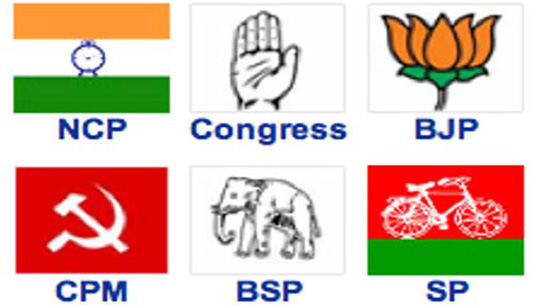NEW DELHI, April 12, 2019 (BSS/AFP) – India’s Supreme Court on Friday
ordered parties to name anonymous donors behind tens of millions of dollars
in funding as hostilities intensified in the country’s mega-election.
The order came ahead of the second round of voting and after the election
watchdog called for a clampdown on Prime Minister Narendra Modi’s personal
television channel, saying it breached campaign rules.
While Modi and his opposition rival Rahul Gandhi returned to the campaign
trail, the country’s top court gave parties seven weeks to name people who
have bought “electoral bonds” in recent months.
Rival parties are said to be spending up to $7 billion on the election,
which started Thursday and runs through to May 19, and funding sources have
come under the spotlight.
The bonds — bought for between $15 and $140,000 and then given to a
designated party — are controversial because they are anonymous.
India’s election commission and watchdog groups which took the case to the
Supreme Court said the bonds should be ended because of the risk of
businesses making secret contributions to influence decisions.
Modi’s government, which introduced the bonds in 2017, opposed naming
donors. The ruling Bharatiya Janata Party (BJP) is the biggest beneficiary of
the bonds, according to the Association for Democratic Reforms (ADR), one of
the groups behind the case.
More than $150 million in bonds were bought in 2018, according to the
Factly Indian data journalism portal.
Experts estimate that at least the same amount was bought in the months
ahead of the election.
– NaMo blow –
According to the ADR, the BJP — the world’s biggest political party —
received about $150 million in total donations in 2018, of which more than
half came from anonymous sources. Congress brought in about $30 million and
about 60 percent was anonymous.
The prime minister, who won a landslide in 2014 and is considered
frontrunner in this race, faced increased pressure after the election
commission said his NaMo TV breached campaign rules.
The commission ordered NaMo TV, which is sponsored by the BJP, to submit
all of its content for approval.
Under Indian election rules, any content deemed campaign material —
including adverts, films and even social media — needs permission from the
independent watchdog.
NaMo TV shows 24-hour programmes on Modi rallies, speeches, and even rap
songs and dance routines devoted to the normally austere leader. It was being
broadcast as normal on Friday.
The order was the commission’s second blow to the Modi campaign in 48
hours, after it postponed the release of a flattering movie about the 68-
year-old prime minister until after voting finishes.
Producers of the film insisted they had no links to the BJP. But the
commission said the film “PM Narendra Modi”, which tells of the Hindu
nationalist leader’s ascent from selling tea at a train station to prime
minister, could not be released during the election.
Modi and Gandhi kept up their punishing schedule of rallies ahead of the
next vote on April 18.
Modi has sought to portray himself as tough on national security,
particularly against Pakistan, which India accuses of fuelling an insurgency
in Kashmir. The two countries came close to a new war in February after a
suicide attack in the disputed territory.
“To kill terrorists in their dens is a policy of a new India,” Modi
thundered at an election rally Thursday referring to an airstrike inside
Pakistan.
Gandhi and Congress have sought to focus on the economy and the fate of
India’s many minorities who say they feel more threatened under the Hindu
nationalist government.
“This is the ‘New India’ they want, one completely devoid of unity and
brotherhood,” said Congress.
In Thursday’s first day, voter turnout averaged 66 percent, according to
the Hindustan Times daily, compared to 70% in the 2014 polls.
The first day of polling saw two supporters of rival parties die in Andhra
Pradesh state and a teenager killed in clashes with security forces in Jammu
and Kashmir.



